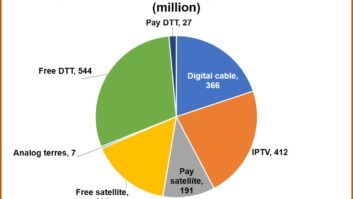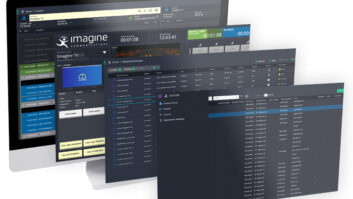The European Commission, European Parliament and European Council have agreed to facilitate access to online TV and radio content across the continent.
The new rules mean it will be easier for European broadcasters to make certain programmes available on their live TV or catch-up services online, and will simplify the distribution of more radio and TV channels by retransmission operators.
According to the European Commission, 41 per cent of Europeans watch TV online, with 50 per cent of Europeans aged 15-24 doing so at least once a week. And among Europeans aged 15-45, 19 per cent use online broadcasting services to watch TV series and films.
The directive change will introduce the country of origin (COO) principle to facilitate the licensing of rights for certain programmes that broadcasters offer on their online services (simulcasting, catch-up services and other services that complement the main broadcast, such as previewing). Broadcasters will be able to make radio programmes, TV news and current affairs programmes as well as their own fully financed productions, available online in all EU countries.
The new Directive facilitates the licensing of rights in the case of retransmission of radio and TV programmes, which includes retransmission services provided over the internet under certain conditions. This measure is expected to contribute to a wider distribution of radio and TV channels.
It also includes direct injection, a process increasingly used by broadcasters to transmit their programmes to the public. The new rules will make sure that rights holders are adequately remunerated when their works are used in programmes transmitted through direct injection. They will provide legal certainty to broadcasters and distributors involved in the process.
The agreement now has to be confirmed by the European Parliament and the Council of the EU.
Vice-President for the Digital Single Market Andrus Ansip said: “I am very pleased we reached yet another agreement that brings us closer to a functioning Digital Single Market. The updated broadcasting rules are a big part of the puzzle. This regulation has the potential to unlock a large amount of broadcast content across borders, benefitting the 41 per cent of Europeans who watch TV online but also the 20 million EU citizens who were born in a different EU country from the one they live in.”







